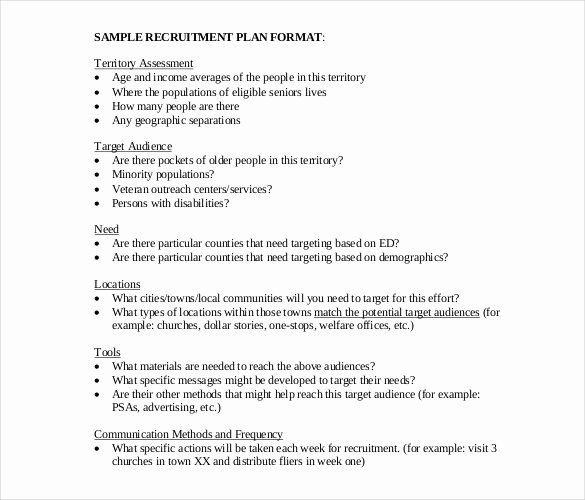Why Thought Leadership Is Critical For Brands At The Mid Stage Of Growth
Thought leadership is critical for brands at the mid stage of growth because it helps establish credibility and differentiate them from competitors in the market. By showcasing expertise and providing valuable insights, brands can attract and engage their target audience, build trust, and position themselves as industry leaders.
This not only enhances brand reputation but also drives customer loyalty and opens up new opportunities for growth. Therefore, investing in thought leadership initiatives is imperative for brands seeking to stand out and thrive in a competitive marketplace.
Building Credibility
At the mid stage of growth, building credibility is crucial for brands. Thought leadership plays a critical role in establishing trust and authority, enabling brands to stand out and attract a loyal audience.
Sharing Industry Insights
One of the key elements of building credibility as a thought leader for brands in the mid stage of growth is sharing industry insights. By offering valuable and in-depth knowledge about the industry, your brand positions itself as an expert and trustworthy source in the eyes of your audience.
Sharing industry insights not only helps to establish your brand as a go-to resource but also allows you to differentiate yourself from competitors. When you consistently provide unique and relevant information, you attract the attention of your target audience and become recognized as a leader in your field.
- Offer valuable knowledge about the industry
- Position your brand as an expert and trusted source
- Stand out and differentiate yourself from competitors
- Attract the attention of your target audience
- Become recognized as a leader in your field
Establishing Expertise
Another crucial aspect of building credibility for brands at the mid stage of growth is establishing expertise. Thought leaders are seen as authorities in their respective fields, possessing a deep understanding of the industry trends, challenges, and potential solutions.
By establishing expertise, your brand gains the trust and respect of both existing and potential customers. This trust leads to increased credibility in the market and positions your brand as a reliable source of information, products, and services.
- Become an authority in your field
- Show deep understanding of industry trends and challenges
- Gain trust and respect from customers
- Increase credibility in the market
- Position your brand as a reliable source
Strengthening Brand Awareness
Brands at the mid stage of growth need thought leadership to strengthen their brand awareness and establish their expertise. By positioning themselves as industry leaders, these brands can gain the trust and loyalty of their target audience. This helps them differentiate themselves from competitors and win over more customers.
Increasing Brand Visibility
At the mid stage of growth, strengthening brand awareness becomes crucial for brands looking to establish themselves as thought leaders in their respective industries. This is because increased brand visibility directly impacts consumer perception and market share.
By actively engaging in thought leadership initiatives, brands can effectively increase their online and offline presence, garnering attention from both existing and potential customers. Through strategic content creation and distribution, brands can position themselves as industry experts, offering valuable insights and solutions to their target audience.
Thought leadership content, such as blog posts, articles, and whitepapers, allows brands to showcase their expertise and knowledge, thereby gaining credibility and trust among their target audience. By consistently publishing high-quality and informative content, brands can attract more attention and differentiate themselves from competitors.
Reaching Target Audience
In order to strengthen brand awareness, it is essential for brands to reach their target audience effectively. Thought leadership plays a key role in this aspect by providing valuable and relevant information that resonates with the intended demographic.
Through thought leadership initiatives, brands can tailor their content to address the specific pain points, challenges, and interests of their target audience. By understanding their audience’s needs and preferences, brands can create content that establishes a connection and fosters engagement.
Targeted content distribution through various channels, such as social media platforms, industry forums, and email newsletters, allows brands to reach their audience where they are most active. This ensures that the right message is delivered to the right people at the right time, increasing the chances of brand recognition and recall.
Overall, thought leadership acts as a bridge between brands and their target audience, enabling brands to establish themselves as knowledgeable and trustworthy partners in their industry.
Driving Customer Engagement
Brands at the mid stage of growth can benefit greatly from thought leadership as it drives customer engagement, fostering trust and credibility. Thought leadership establishes brands as industry experts, attracting and retaining customers through valuable insights and innovative perspectives.
Creating Meaningful Connections
Thought leadership is a powerful tool that unleashes the potential of your brand, ensuring it stands out amidst the competition. By embracing thought leadership at the mid-stage of growth, brands can drive customer engagement to new heights. One key aspect of this is creating meaningful connections with your target audience.
Building relationships with customers is more than just a transactional exchange. It involves establishing an emotional connection that goes beyond the product or service you offer. When you position your brand as a thought leader, you become a trusted advisor in your industry, someone customers look up to for valuable insights and guidance.
By consistently providing high-quality content that addresses their pain points and challenges, you foster a sense of trust and reliability. Customers are more likely to engage with a brand that offers them solutions and knowledge, ultimately leading to stronger customer relationships.
Fostering Loyalty
In the competitive landscape of the mid-stage growth, fostering loyalty is crucial for sustaining long-term success. Thought leadership plays a pivotal role in building customer loyalty by establishing your brand as a reliable and authoritative source of information.
When customers perceive you as a thought leader, they view your brand as an industry expert. This perception creates a sense of trust and credibility, which are vital factors in cultivating long-lasting relationships. As your thought leadership content consistently delivers value and insights, customers are more inclined to become loyal advocates for your brand.
Loyal customers not only stay with your brand but also actively promote it within their networks. They become brand ambassadors, spreading positive word-of-mouth and attracting new customers organically. By fostering loyalty through thought leadership, you can amplify the reach of your brand and strengthen your position in the market.
Differentiating From Competitors
At the mid stage of growth, brands face increasing competition in their industry. Standing out in a crowded market becomes paramount in order to attract customers and gain a competitive edge. One effective way to achieve this is through thought leadership. By highlighting a unique perspective, brands can differentiate themselves from their competitors and establish themselves as leaders in their field.
Highlighting Unique Perspective
Identifying and showcasing a unique perspective is a crucial aspect of thought leadership. Customers are constantly bombarded with information and options, which makes it imperative for brands to offer something different. By presenting a distinctive point of view through thought leadership content, brands can capture the attention of their target audience and set themselves apart from the competition.
Standing Out In A Crowded Market
| Bullet Points | Benefits |
|---|---|
| Demonstrating expertise | Showcasing knowledge and experience helps establish credibility and trust with customers. |
| Providing valuable insights | Offering unique and valuable insights positions the brand as an authoritative source of information. |
| Creating brand loyalty | Engaging thought leadership content can cultivate a loyal customer base, encouraging repeat business and referrals. |
| Attracting new customers | By offering thought-provoking and relevant content, brands can attract new customers seeking expert guidance. |
Thought leadership presents an opportunity to stand out in a crowded market by leveraging the knowledge and expertise of the brand. By demonstrating expertise, providing valuable insights, creating brand loyalty, and attracting new customers, brands can gain a competitive advantage and establish themselves as industry leaders.
Generating Business Opportunities
Thought leadership plays a critical role for brands at the mid stage of growth by generating business opportunities. As industry experts, brands can establish trust and credibility, attracting customers to engage and explore their offerings, while gaining a competitive edge in the market.
Attracting Potential Clients
Thought leadership plays a crucial role in generating business opportunities for brands at the mid stage of growth. By positioning themselves as experts in their industry, brands can attract potential clients in a highly competitive market. When businesses establish thought leadership, clients are more likely to trust their expertise and seek their services or products. This trust builds a strong foundation for successful client relationships.
Several strategies can be employed to attract potential clients through thought leadership:
- Creating valuable content: Brands can create informative and insightful content that addresses their target audience’s pain points and provides solutions. By consistently producing high-quality content, businesses can establish themselves as reliable sources of information.
- Showcasing expertise: Brands can demonstrate their knowledge and industry insights through blog posts, articles, webinars, and podcasts. By sharing valuable insights, brands can build credibility and attract potential clients who seek their expertise.
- Utilizing social media platforms: Brands can leverage social media platforms to showcase their thought leadership and engage with their target audience. By sharing thought-provoking content, brands can generate interest and attract potential clients who resonate with their perspectives.
Building Strategic Partnerships
Thought leadership not only attracts potential clients but also paves the way for building strategic partnerships. When brands establish themselves as thought leaders, they can attract other industry professionals who recognize and appreciate their expertise. These strategic partnerships can open doors to new business opportunities, collaborations, and joint ventures.
Here are some ways in which thought leadership can help in building strategic partnerships:
- Forging collaborations: By showcasing thought leadership, brands can capture the attention of other successful professionals in the industry. This attention can lead to collaborative projects, where brands can leverage each other’s strengths to achieve mutual goals and expand their reach.
- Networking opportunities: Thought leadership often positions brands as authorities in their industry. This recognition gives brands the opportunity to connect with like-minded professionals at conferences, industry events, and webinars. These networking opportunities can lead to valuable partnerships that fuel business growth.
- Gaining industry recognition: When brands consistently produce valuable thought leadership content, they gain recognition and visibility within their industry. This recognition attracts attention from other industry professionals who may be interested in partnering with them.
Frequently Asked Questions Of Why Thought Leadership Is Critical For Brands At The Mid Stage Of Growth
Why Is Thought Leadership Important For Brands In The Mid Stage Of Growth?
Thought leadership establishes a brand’s expertise and credibility, attracting customers and boosting growth in a competitive market.
How Can Thought Leadership Help Brands Stand Out During The Mid Stage Of Growth?
Thought leadership enables brands to differentiate themselves, build trust with customers, and create valuable industry connections.
What Are The Benefits Of Thought Leadership For Brands Navigating The Mid Stage Of Growth?
Thought leadership drives brand recognition, fosters innovation, attracts top talent, and positions brands as industry leaders, enhancing long-term success.
Conclusion
Thought leadership plays a critical role for brands in the mid stage of growth. By establishing themselves as industry experts, brands can gain trust and credibility, attracting customers and partners. Through valuable content and innovative ideas, thought leaders can foster a strong brand identity and differentiate themselves from competitors.
This position of authority can also open doors to collaborations and create opportunities for expansion. Embracing thought leadership is essential for brands to thrive in the fast-paced and ever-evolving business landscape.



